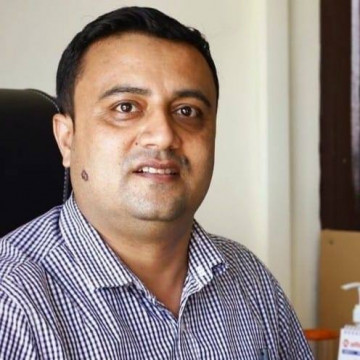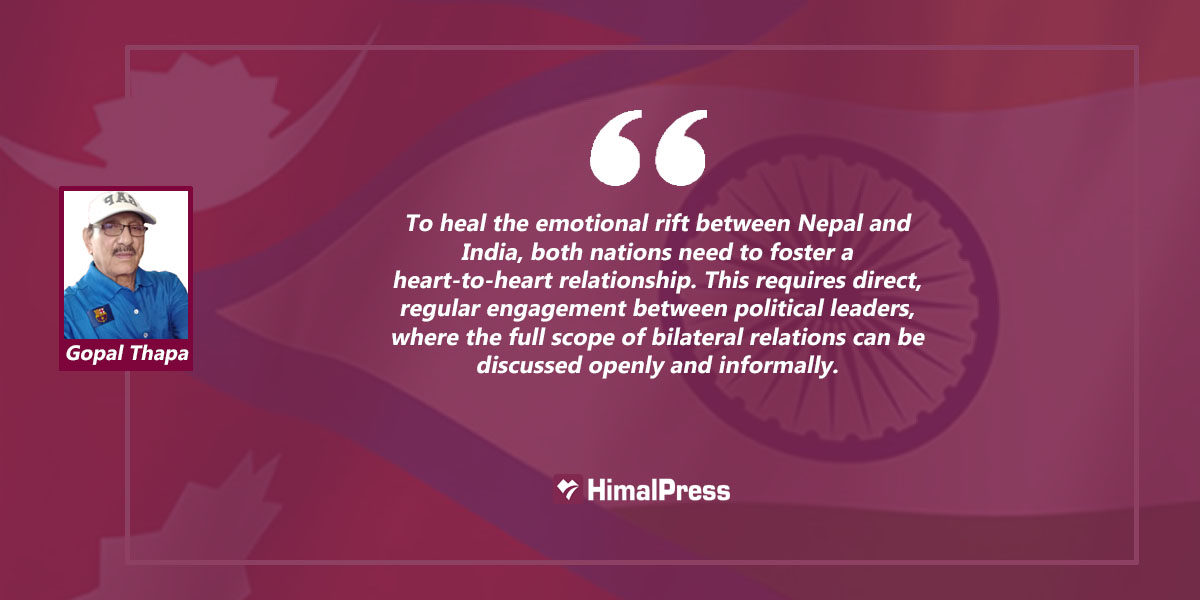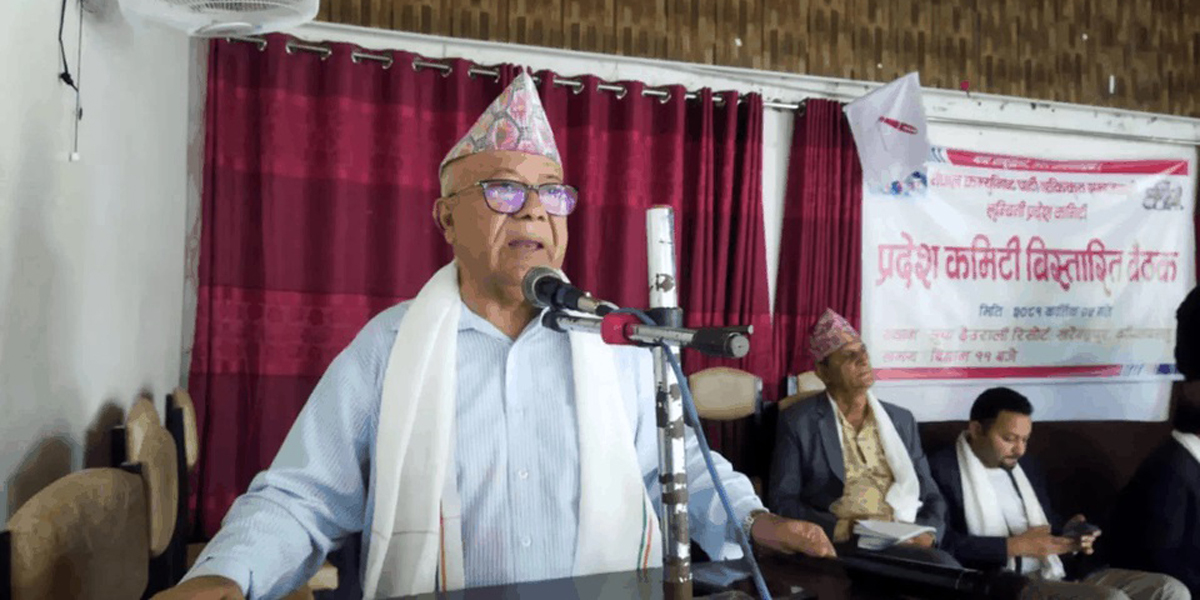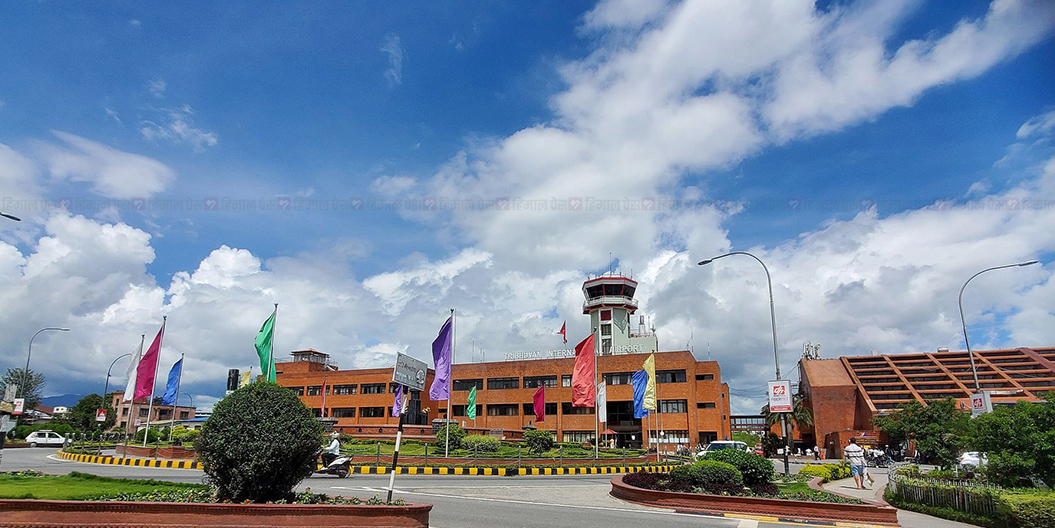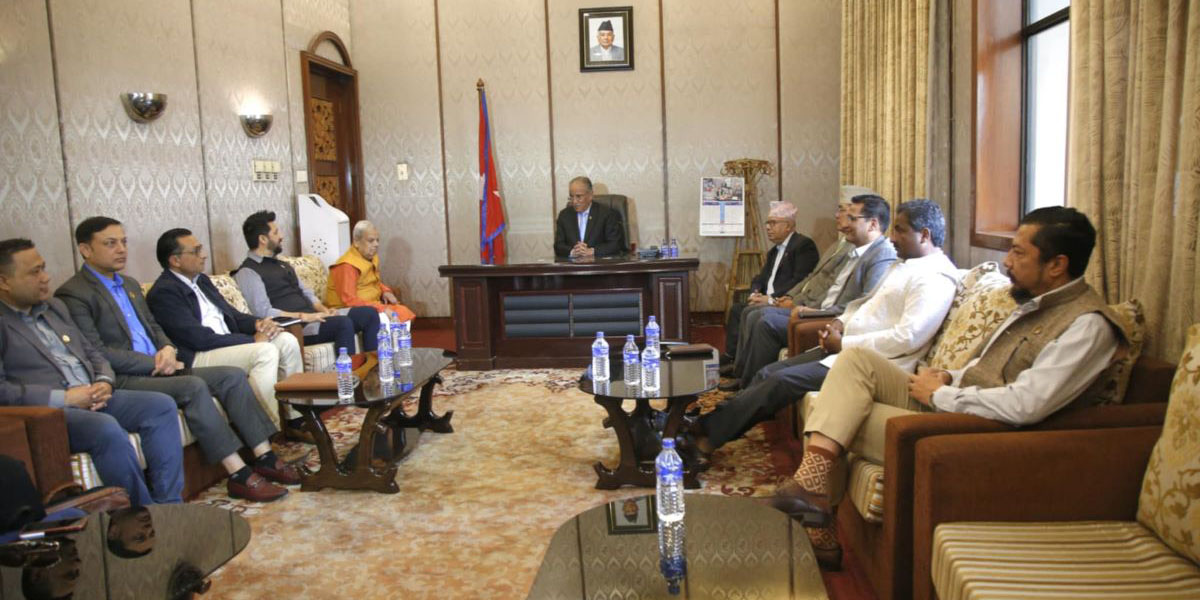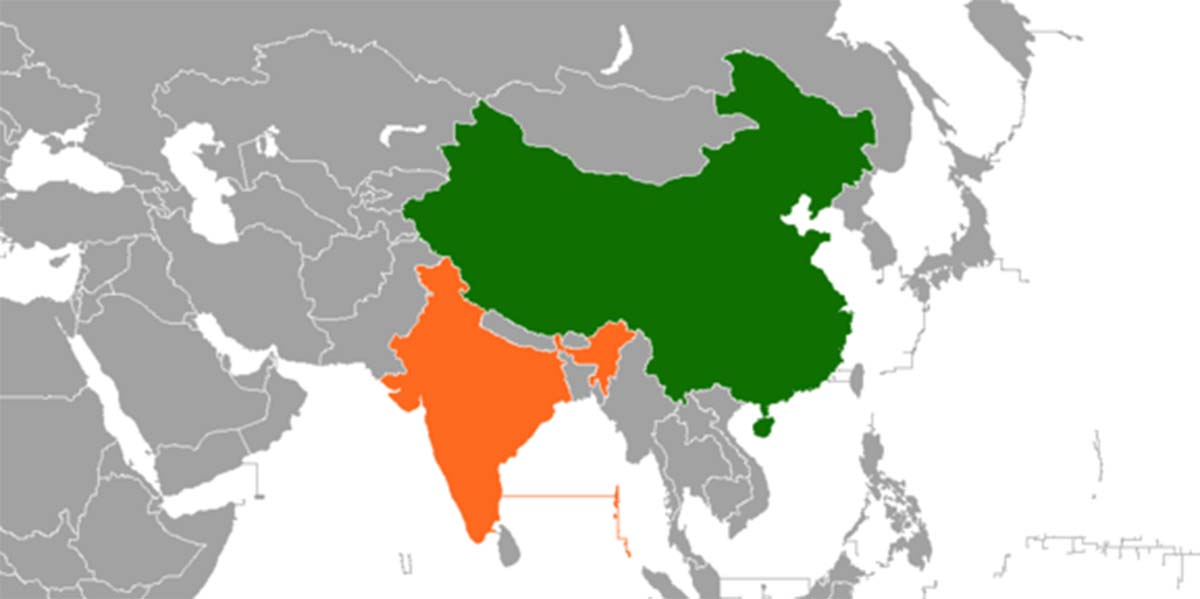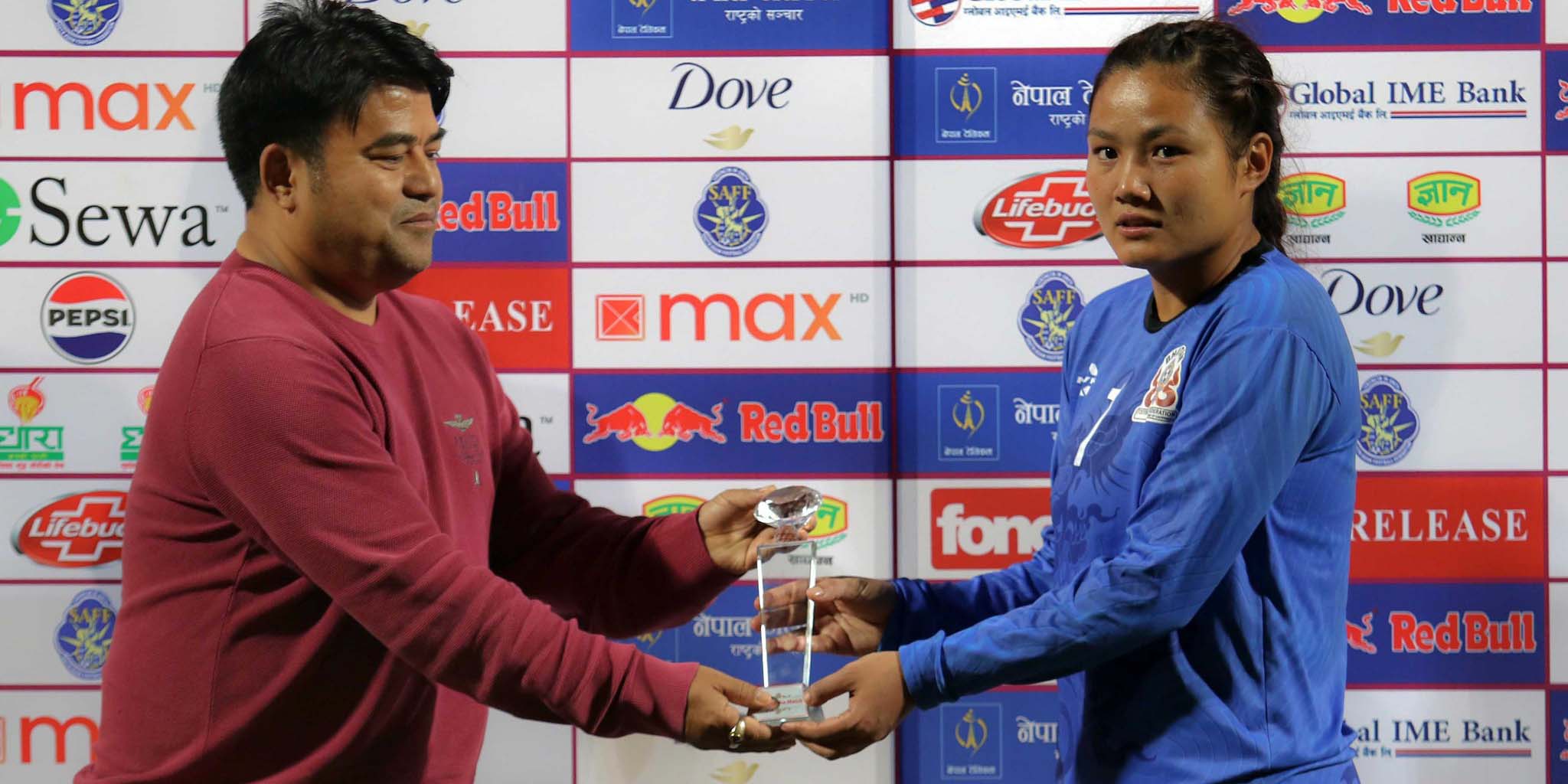
Professor Dr Samir Kumar Khanal is among a few Nepalis involved in research works in a foreign land. Born in Kapilvastu, Khanal’s academic achievements are exemplary. Also, the respect earned by the journal being published under his leadership is equally impressive. Khanal, a professor of molecular bioscience and bioengineering at the University of Hawaii, is the editor-in-chief of the world-renowned journal ‘Bioresource Technology’ with an impact factor of 11.4. Khanal heads the 58-member editorial board of the journal, which includes scholars from countries like the US, China, India, Japan, Malaysia, South Korea, Russia, Australia, and several European countries. Although based in Hawaii, Khanal is a globetrotter as he is a faculty member and visiting scholar for prestigious universities in India, South Korea, China, Japan, and many other countries.
Prof Dr Khanal, 55, is from Dumara in Buddhabhumi Municipality of Kapilvastu. He completed high school at Janaki Secondary School in his homeland and did his ISc from Butwal Multiple Campus. Before joining the University of Hawaii, he was a Postdoctoral Research Associate for two years and then a Research Assistant Professor for four years in the Department of Civil, Construction, and Environmental Engineering at Iowa State University. He received a BS (Hons) in Civil Engineering from Malaviya National Institute of Technology, Jaipur, India, and an MS in Environmental Engineering from the Asian Institute of Technology, Bangkok, Thailand. His PhD degree is in Environmental Engineering from the Hong Kong University of Science and Technology, Hong Kong. He has been living in Hawaii since 2008.
Prof Dr Khanal says the lack of education and vision of people at the leadership level has to be blamed for the mess that the country is in. “Our schools don’t want to focus on research. I don’t see our scholars working hard to make their students better than them,” Khanal said. Commenting on the mushrooming of universities in Nepal, Khanal said the activities of these universities have failed to justify why they were opened. “Universities shouldn’t be opened haphazardly just to employ some people. There should be academic discourse in universities. People need to be made aware of why education and study are needed,” Khanal shared.
Remembering his seniors like former energy secretary Dinesh Ghimire and National Planning Commission Vice Chairperson Prof Dr. Govinda Pokharel and colleagues like Ishwari Poudel and Tulsi Sitaula, Khanal said these people were well aware of where our problem lies. “I don’t know why they did nothing in this direction,” he added.
Prof Dr Khanal is working in the fields of waste management, food situations, and the environment, among other issues. He feels saddened seeing the impacts of climate change in Nepal and agricultural land remaining fallow due to urbanization. “After urbanization, it is possible to promote commercial farming in rural areas. The leadership should be serious about this,” he added.
Talking about the Bioresource Journal, Prof Dr Khanal said its impacts are significant. He said over 10,000 papers are collected and studied in a year to prepare the journal. “Only about 20% of them are published. Many experts brainstorm on a wide range of topics during peer review. This justifies our impact factor of 11.4,” he added.
As the journal is renowned worldwide, there is a lot of competition to get research works published in it. According to Khanal, it takes a lot of effort to conclude whether the work submitted is based on research or plagiarized. “Someone may have given the wrong information. Since researchers earn thousands of dollars once their papers are published; peer reviewers and editors may try to deceive us. It is a challenging job,” he added.
Khanal, who became a professor within 10 years of his teaching career, is among the few Nepali academicians making Nepal proud in a foreign land. Every year, he selects one or two students from Nepal and five from South Asia and invites them to Hawaii. He has also been giving researchers at Kathmandu University opportunities in Hawaii. According to conservative estimates, there are around 500 professors of Nepali origin in the US. However, only a few of them are providing opportunities to their compatriots.
Khanal’s research works have received over 13,000 citations. He has published more than 140 papers in leading journals. Likewise, he has co-authored several books on biorefinery, bioenergy, biotechnology, etc. He has contributed chapters to 17 books.
He leads a team of 14 PhD, 12 post-doctoral, 15 visiting, and several other scholars. Khanal, who has received most of the awards distributed by the University of Hawaii, however, is relatively unknown in his birthland, Nepal. When he is in Nepal, he meets professors of Kathmandu University, hangs out with former colleagues, and holds discussions with government secretaries and retired government employees providing expert services in different sectors.
According to Khanal, Nepalis can get a lot of opportunities in the US. He feels that most Nepalis apply for positions without sufficient research and study. “If you study and research well, you can get a lot of opportunities in the US,” he added.
He is worried that people who can become doctors, engineers, scholars, and scientists are involved in odd jobs in the US. “Educational consultancies are not providing sufficient information. There is also a lack of study culture in our younger generation,” Khanal said. “Our society has made earnings, and not knowledge, the yardstick to measure one’s success.”
Prof Dr Khanal said there is no dearth of opportunities for studious minds. “China and India are also providing a lot of scholarships. But many people know nothing about this. Some people have information, but they don’t prepare well or are simply not interested,” he said. “I have seen many Nepali students reaching good universities with the help of consultants. But they often leave study when they start working to earn money.”
A few days ago, Khanal tried to take a few students of environmental science from Tribhuvan University to Hawaii. “But they said they won’t be able to do research works in the US. They lacked the confidence that they can excel in the US,” he added.
Khanal is closely following the process of appointing a new Vice-Chancellor at Tribhuvan University. Stating that the new Vice-Chancellor should have a clean image, not be involved in plagiarism, and be able to command and lead the institution, Khanal said, “If that happens, we will be able to disseminate a good message to the academic world.”

